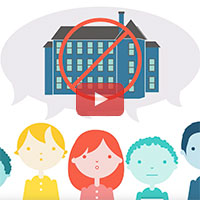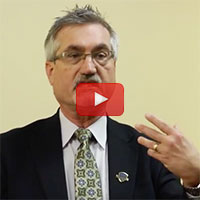Video Topic: Community Inclusion
| Videos | Added | Views | Topics | Series | |
|---|---|---|---|---|---|

|
Should we build new institutions?Research indicates that people with disabilities have better outcomes when they have supports to live in the community rather than living in institutions, however, initiatives to create new institutional lving settings are being proposed in many U.S. communities. This video considers whether that is a good idea. It is adapted from the white paper "Community Living and Participation for People with Intellectual and Developmental Disabilities: What the Research Tells Us," from the American Association on Intellectual and Developmental Disabilities (AAIDD) and the Association of University Centers on Disabilities (AUCD).
|
October 2017 | 149 | Community Inclusion, Community Supports, Disability Rights, Housing, Independent Living, Autism, Intellectual Disability | |

|
Unconscious Biases: Shattering Assumptions and Surprising OurselvesLearn about unconscious biases about people with disabilities and their ability to work in the competitive workplace – and how to challenge assumptions.
|
October 2017 | 345 | Career Development, Community Inclusion, Disability Awareness, High Expectations, Employment | |

|
Disability VoteThe Advocacy Center of Louisiana, Disability Rights New York, Disability Rights Network of Pennsylvania, and Disability Rights Washington, which operates this Rooted in Rights YouTube channel, are all part of the federally funded protection and advocacy system and members of the National Disability Rights Network.
|
August 2015 | 1258 | Civil Rights and Legal Protections, Disability Rights, High Expectations, Independent Living, Voting, Community Inclusion | |

|
History of the Disability Movement in the United StatesA dry but informative presentation by University of Kansas Professor Michael Wehmeyer that characterizes the history of people with disabilities, particularly people with intellectual and developmental disabilities, as having 3 distinct waves. Firstly, the Professional Movement, predominant from 1850 to mid 20th century; secondly, the Parent Movement that emerged in the 1950s; and thirdly, the Self-Determination Movement.
|
February 2015 | 474 | Community Inclusion, Civil Rights and Legal Protections, Community Supports, Family Support, Health, Independent Living, Intellectual Disability, Self-Determination, Special Education, Transportation |
